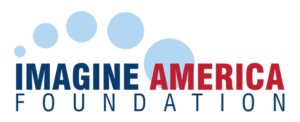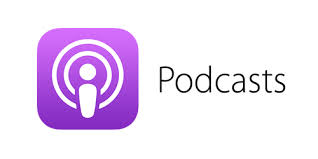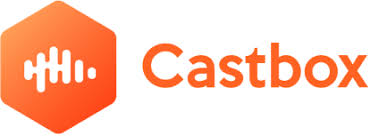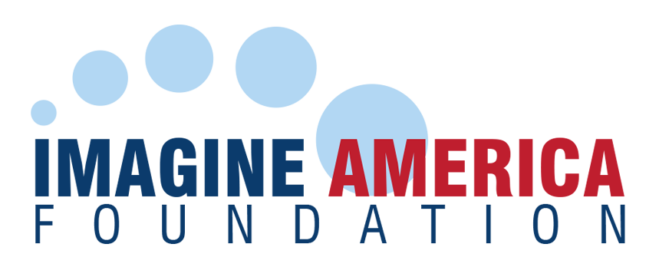RESPONSE TO COVID-19: SEASON 1, EPISODE 7
COVID-19 RESPONSE FROM PORTER & CHESTER INSTITUTE AND YTI CAREER INSTITUTE - SEASON 1, EPISODE 7
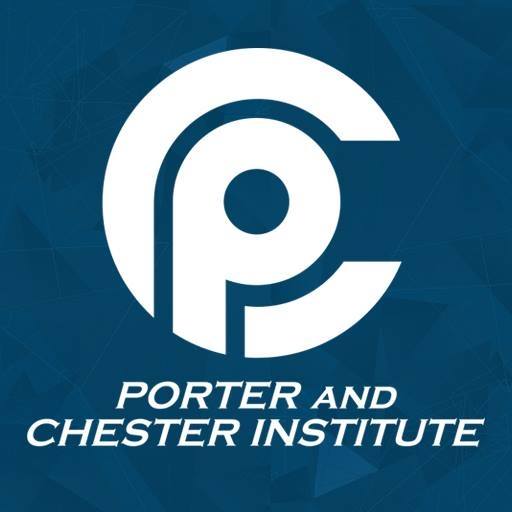
Porter & Chester Institute
Porter & Chester Institute has been training the American workforce since 1946. Schedule a virtual tour!
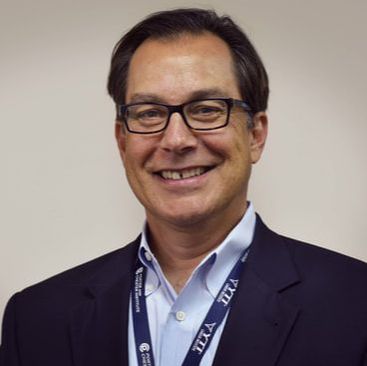
Jim bologa
Our guest on this episode of Imagine America Radio is President/CEO of Porter & Chester Institute and YTI Career Institute, Jim Bologa
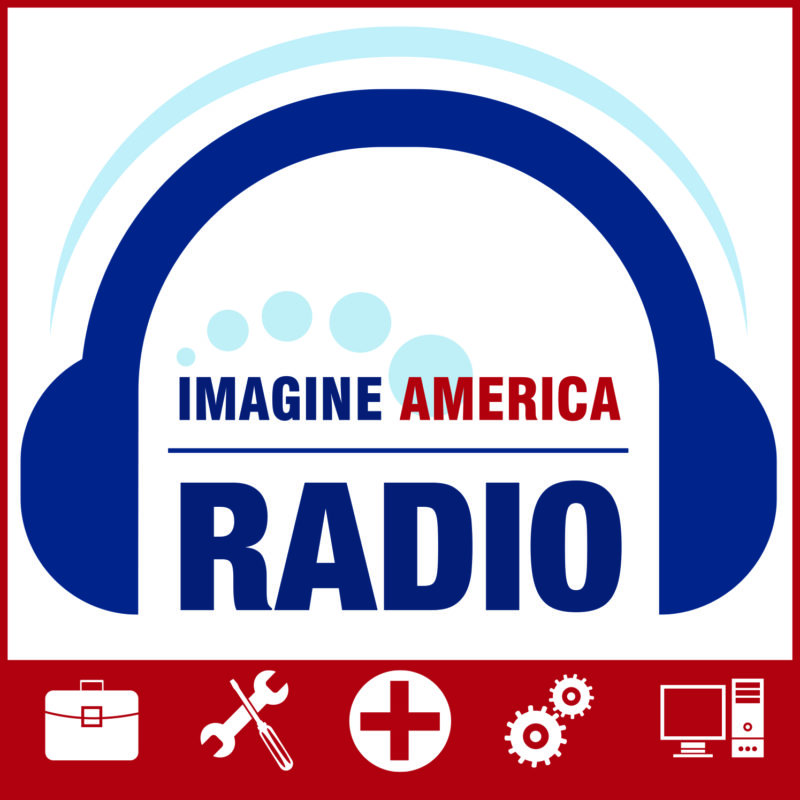
Imagine America Foundation
The Imagine America Foundation has been supporting students and the career college sector for over 20 years!
More FROM PORTER & CHESTER INSTITUTE
Read the Transcript Here
Lee Doubleday: Joining us today on Imagine America Radio is Jim Bologa, president and CEO of Porter & Chester Institute and YTI Career Institute. Porter & Chester has nine campuses all up and down Connecticut and Massachusetts, while the YTI Career Institute has campuses located in Altoona, Lancaster, and York, Pennsylvania. These campuses have been educating tomorrow’s workforce since 1946 and are accredited by the [Accrediting Commission] of Career Schools and Colleges. Today’s topic: We’re going to be talking about COVID-19 and what Porter & Chester and YTI Career Institute are doing about this pandemic. |
Bob Martin: Hey, Jim, this is Bob Martin. Thank you for joining us. We really appreciate it. You’re probably up to your ears, busy and stuff. But we think it’s important to start getting good information out there about what our schools have done related to the coronavirus. So first, let’s talk about the elephant in the room. What’s Porter & Chester done? (Elephant in the room being the coronavirus.) What have been your proactive activities as you reacted to the coronavirus? |
Jim Bologa: Well, Bob, thanks for having me. And yeah, we’ve been pretty busy the last couple of weeks with the coronavirus and making sure that we’re able to create a safe environment for all of our faculty, staff, and—most importantly—our students. And so what we’ve been doing is we’ve been monitoring the situation now for, I’d say, probably three or four weeks now. And last week, on Tuesday, we took all of our programs from a residential or non-ground delivery model to an online delivery model using our learning management system. So all of our students and our faculty who were once reporting to our campuses are now conducting and continuing their education online. |
And we are making plans for our students who need to get lab experience and clinical experience. We’re obviously working with clinical science. Many of them had to shut down. So we’re approaching the regulatory bodies that oversee those clinical sites as to whether or not, and our educational programs, whether or not there is opportunity for us to use some other delivery method or modality of education. In some cases, maybe simulation and/or case study sort of techniques that will allow us to achieve a similar educational experience. And again, we are in discussions with their regulatory bodies and our legal counsel regarding many of the governor’s orders as to how we might be able to continue. |
Many of our students who are looking to come into our schools to conduct their on-ground lab environment activities. And again, we’re working through that right now. We’re hopeful that in relatively short order we’ll be able to bring in small groups of students into our campuses. Hopefully they can complete their lab environment activities, and then complete their education through the winter term. And for those students who are seniors, that’ll afford them the opportunity to graduate here coming in April for us. |
Bob: So Jim, what I’m hearing is you’re open for business. Number two, you’ve made the appropriate accommodations so that the student can continue learning off-site and continue through his or her sequence of courses and practicum kind of things. You brought up something that I want to go back to, and then Lee is going to jump in here too. What’s your reaction to all these governors’ orders and mandates talking about essential services because, as we talked before, it seems to me that Porter & Chester is providing meaningful career training and education in many of those areas whether it’s—well, I’ll let you react to it. How are you reacting to those? |
Jim: Yeah, no, it’s a great question, Bob. And I think for anybody listening to this podcast, I mean, I would encourage them to check out our websites at porterchester.edu or yti.edu. And if you look at many of the governors’ orders—and we operate, as Lee mentioned, in three states: Pennsylvania, Connecticut, and Massachusetts. The governors are defining essential and non-essential jobs or positions, if you will. And when you go down through the list of essential positions that are required to report to work, you’re going to see things like plumbers, electricians, HVAC techs, auto mechanics, nurses, anybody in and around health care, anybody in and around information technology. So there’s a tremendous opportunity for prospective students looking for a viable career path to find their way in one of those “essential jobs” as being defined by our state governments. |
Bob: Yeah, but even more importantly—Jim, I’m sorry. I interrupted Lee. You’re filling the pipeline up of people that could be coming out very, very soon that could start providing those services, am I right? |
Jim: No, absolutely. And that’s why we’re trying to do everything possible to continue our existing students or continuing students helping them continue along their educational path towards completion. And that’s why we’re also continuing to keep our campuses open to the extent that we can with regards to our admissions and our financial aid and our career services teams, so that we can continue to facilitate that. And we are prepared to move all of our operations whether they be admissions or educational funding (aka financial aid and career services) online in case we need to do that to meet the governors’ orders, to move effectively to a sequester period here. But yeah, we’re open for business. We’re continuing to move down the educational path. So if folks have interest, again, I would reference them back to our websites (porterchester.edu or yti.edu) for more information. |
Lee: Okay. And I know that you had sort of touched on this earlier, but are you still open for tours? So, if I’m a student who is interested in going to your school, is it possible to still come tour the campus? Or how would I go about that? |
Jim: Yeah, that’s a great question, Lee. We are sort of listening to what the governor in each of the states are asking us to do. So one of the things we have implemented as a stop-gap is we are now conducting a virtual tour. And we’re also conducting effectively a virtual interview as well. And so folks who are interested, in their homes, can basically make an appointment and someone will reach out to them and we’ll do this all online. And they’ll get a—there’ll be a little walkthrough, basically, of our campus and get a view of what a day in the life of a student is in our campus, in terms of each of the programs that we offer. And, again, I think that for us, we’re trying to meet the students where they’re at right now—and many of them are in their homes with their families. |
Lee: Yeah. Yeah, absolutely. Okay, that’s very interesting. We will definitely make sure to include a link to where students can go to sign up for a virtual tour in the description of this podcast. So if I’m a student—and let’s say I do the virtual tour. I’m interested in enrolling in a future class, but are you still enrolling for future classes, and when does the next class start? |
Jim: Yeah. Another great question, Lee. Yeah, we are still enrolling students. We enrolled students, actually, yesterday. We’ve been enrolling them throughout the term. Our spring start for new students is Monday, April 20th, in Connecticut and Massachusetts at the Porter & Chester Institute, and for YTI Career Institute, we are starting on Wednesday, April 22nd, in our Pennsylvania schools. And, again, what we’ve done is we’ve moved many of the admissions requirements online so that if someone’s not feeling comfortable about possibly coming to a school location, a campus location, we can do it all online. We’ve been working with all of our partners and vendors to take basically all of our operations online. And so now what we’re going to do is we generally administer the Wonderlic assessment to really gauge fits, for us and a prospective student. And we’ve worked with Wonderlic, and we’ve recently—we’re able to now conduct that assessment online. And we are in the final process of being able to have students complete an application online, and then from there, they can—we’re very close to having them actually sign their enrollment agreement online and pay their application fee online. So we really have done a lot in terms of moving our physical operation to an online operation, and we’re excited to—again, we’re excited to meet the students and their families and their other support members where they’re at right now. Many of them are, again, at home. Some of them, in these uncertain times, may be facing career uncertainty if they’ve been recently laid off, but we’re trying to be as responsive as we can to our prospective student population as well as our continued student population. |
Bob: Jim, this is Bob again. Just since we’ve been doing this podcast, the president has announced that he wants to start getting people back to work. He wants things to start opening up on Easter—he wants to on or around Easter. So I think your start times are kind of synced pretty well with the—that’s going to be the national government’s goal, as I understand it, which is to start rolling out, opening back up, around Easter time. How do you react to that? Does that make sense to you? |
Jim: Yeah, it does. I mean, again, we’ve gone through our campuses. We’ve had them all deep cleaned with our cleaning services. And so we feel good that, you know, that process has been done and we cleaned them after we sent all the students home last Monday, and we feel pretty good about that. I think the other thing that we’ve been thinking about is really making sure that we can embrace some of these new—this new way of life, if you will. So I think for us right now, we have shared many pieces of information on proper handwashing, also not touching your face, not sneezing into your arm or into your sleeve, just really good infection control practices and, again, in terms of social distancing, we’re thinking about different ways that we can continue to deliver education. I think that one of the things that we’ve been thinking about is we might just continue with our classroom or lecture portion online, if at all possible, and then that would just limit the amount of time that students might be together in their lab environment, and it might be a little bit easier for us to continue to meet some of the social gathering requirements and allow the students’ education to continue. But I think that that time period is perfect for us and, again, we’re ready, willing, and able to face these challenges that have sort of been thrown our away via the coronavirus and so far, so good. Again, it’s been a lot of change in a very quick amount of time. |
Bob: Yeah, I’m always struck, like you Jim. I’ve been around this business for more than 25 years. I’m always amazed at how you guys adapt. You’re the consummate entrepreneurs. You adapt, but I think this time there’s going to be some more permanent changes. I’m hearing, in other words, I think in subsequent podcasts we should be looking at this whole virtual interview, this whole virtual application—not from the intricacy side of it, but just getting people more comfortable with that. Getting more people more comfortable how it’s going to proceed and then, more importantly, how are you doing toward getting people back into school? Because you can only do so much—you can do a lot online, but you can only do so much online, right? |
Jim: Yeah, I know. Absolutely. I mean, most of our programs are structured in a way that it’s about 50% lecture, if you will—or classroom time—and 50% hands-on, so many of the students who attend our schools are coming really to refine their—what I’ll call their practical, tangible skills, and generally you can’t do that very well in a virtual world. I mean, you can do a little bit of simulation, but I think nothing really truly beats the physical hands-on experience of cutting somebody’s hair or running a respirator or changing a compressor on a heating unit or bending conduit or injecting somebody with, possibly, some medication or drawing blood. I mean, those are things that you really need to—you use all five senses and it’s really appreciated and internalized, the theory that you’re learning into practically applying that theory and mastering the application in terms of technique. So yeah, I think for us, again, we are looking at other ways of delivering all these so that we can, I think, again, help the country mitigate any sort of continuance of this coronavirus whether it’s into the summer or into the fall. Again, we’re thinking down the road as to how we can best serve our students. |
Bob: Every time I talk to you, Jim, I always get six or seven more ideas I just want—before we close it, before we close our session, I just want to thank you because you’ve been out on the forefront and you’ve been more than willing, when we get a new idea, to help us with that new idea and we really appreciate Porter & Chester and YTI and how they’ve supported us over the years. And forgot all about the whole scholarship thing, which is you’re one of our premier scholarship providers, and I want to thank you for that, which is providing assistance to students every single day. So, Lee, we’re ready to close, I think. |
Lee: Yeah, yeah. So Jim thanks again for joining us on yet another podcast of Imagine America Radio. We want to wish you well. We hope you stay healthy, and we enjoyed our conversation today and what Porter & Chester and YTI Career Institute are doing about the COVID-19 pandemic. So with that, thank you very much. |
Jim: Thank you guys for the opportunity. I always enjoy speaking with you. Thank you. |
Lee: Thanks. |
Jim: Stay safe. |
